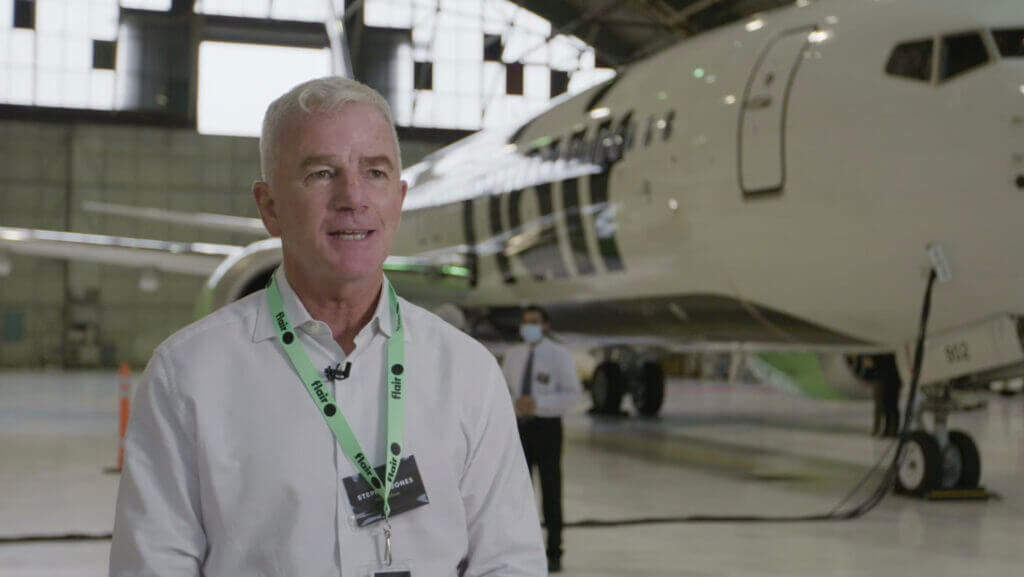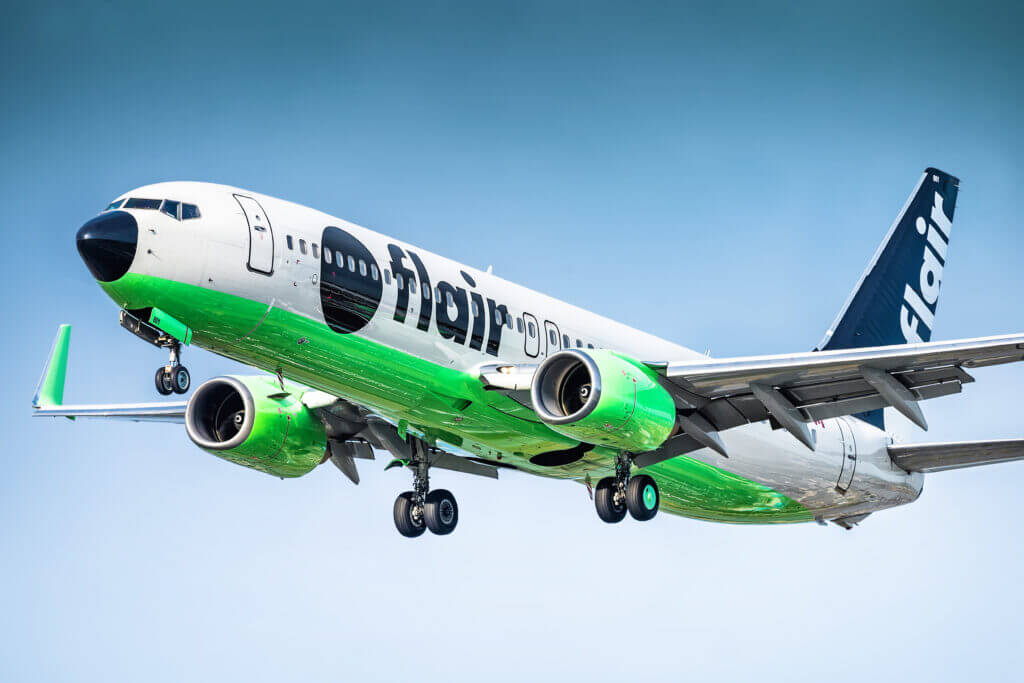Estimated reading time 6 minutes, 40 seconds.
As Stephen Jones began the Flair Airlines press conference on Feb. 8, 2024, he was prepared for questions concerning the airline’s $67 million in unpaid federal taxes.
First, though, Flair’s CEO wanted to share some good news statistics in his 2023 year-end review.
“It’s important to realize that we’ve fundamentally changed the shape of aviation in Canada,” Jones said during his online address. “We came into the market in a really big way from 2021, as we added the (Boeing 737) Max aircraft to our fleet and grew our ULCC (ultra low-cost-carrier) business.”

He shared a number of key performance metrics from 2023, including a 98.2 per cent flight completion rate and Flair’s ranking as the second-most on-time airline in Canada (68.8 percent).
“On-time performance is a fantastic metric, but it’s not one we have direct control over,” qualified Jones. “It’s an outcome over a number of processes that come together – from scheduling to maintenance, and getting the first flight of the day out on time is key. It’s a team game with all of our partners.”
He reported that 86 per cent of Flair Airlines seats were sold in 2023, a load factor that was up nine percent over 2022. The Edmonton-based airline flew more than 4.5 million passengers to more than 35 cities in Canada, the United States, Mexico, the Dominican Republic, and Jamaica. Last year, Flair added two new planes and five new destinations to its network, along with 30 new route destinations.
“Low cost travel is for everyone. It’s not a product for the rich and the elite. We’ve put affordable travel in the hands of all Canadians,” said Jones.
He also discussed what he called the “Flair effect,” which is about the money the ULCC has saved travelling Canadians. The airline estimates it will save passengers $415.6 million on ticket fees, even as it generates $1.23 billion in economic output and $576 million in GDP.
Flair has conducted research which shows Canadians are travelling more often for shorter durations, and booking flights closer to the date of travel. This fits with the airline’s “Live more in 24” campaign, which encourages people to “spend less in the air and more on the ground” at their destinations.
Jones also recapped Flair’s commitment to sustainability, claiming the ULCC’s carbon footprint was 30 per cent less than its competitors in 2023. Fleet operational efficiencies and CO2 reduction initiatives have allowed the airline to avoid six million kilograms of CO2; as well, the airline has gone plastic-free with an emphasis on recyclable and compostable cups and cutlery on board.
As for the airline’s 18-month cadet training program, announced last summer in partnership with Genesis Flight College, Jones said the first class of 16 “high quality” cadets is now in training. The airline plans to run more than one cohort at a time, looking to secure a pipeline of first officers for the future. Meanwhile, Jones added, Flair is not immune from the overall shortage of experienced captains.

‘Zero impact on our operations’
When questioned by reporters about the airline’s $67 million unpaid federal tax bill, which made news at the end of January, Jones said the fees related to taxes and duties associated with the importation of nearly 20 aircraft into Canada.
He said Flair has “an arrangement with CRA and we are current with the CRA claim, and that’s where it sits today. The CRA repayment has zero impact on any of our operations.”
Jones dismissed the idea of instability at the airline and reiterated that as a privately held company, Flair is not required to disclose its tax matters. Likewise, he said he could not comment on rumours surrounding a possible merger with Lynx Airlines.
For the travelling public, Jones said his message is simple: “They can confidently book with Flair. We’ll be here delivering the same product we’ve been delivering successfully for years.”
He chided the media for creating what he feels is “a level of sensationalism” with the headlines surrounding the CRA situation.
“Our arrangement (with the CRA) has been in place for some months, but the headlines go straight to doom and gloom,” he said. “Aircraft would never have been seized and sold.”
Looking ahead, Jones forecasted a mix between domestic and international travel for 2024, adding that “people are getting used to travelling cheaply.”









I would like to comment. Stephen Jones may have high hopes for Flair, and I sure do want the airline to succeed. However, Flair is a large carrier as of Janurary 1, 2024, and is not operating under APPR requirements. Jones is aware of this, as I received an email from management this week in my quest to be rebooked on a competitor from a member of Flair’s upper management that Jones was cc’d on. As well, I have emailed Mr. Jones directly more than 10 times requesting support in my quest to be rebooked on a competitor’s flight after Flair cancelled my flight. Confidence in booking with Flair comes when an airline follows the law/APPR guidelines. I have an email trail and recordings to prove that this is not the case.